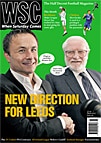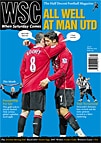 Ireland’s foreign minister has broached a tricky subject: if one team can represent the island in rugby, why not in football? Paul Doyle reports on the backlash, or lack of one, from some quarters
Ireland’s foreign minister has broached a tricky subject: if one team can represent the island in rugby, why not in football? Paul Doyle reports on the backlash, or lack of one, from some quarters
The mainly Nationalist fans of Cliftonville came up with a new chant a few years ago to mark the beginning of the Northern Irish peace process. Reworking the words of the popular old terrace ditty “You’re going to get your fucking heads kicked in”, they taunted the supporters of traditionally Unionist-backed teams such as Linfield and Glentoran with triumphant cries of “Cross-border bodies with executive powers”. The creation of such bodies was part of the Good Friday Agreement and a move that Nationalists hope will eventually lead to a united Ireland, which, of course, is a scenario Unionists dread.
